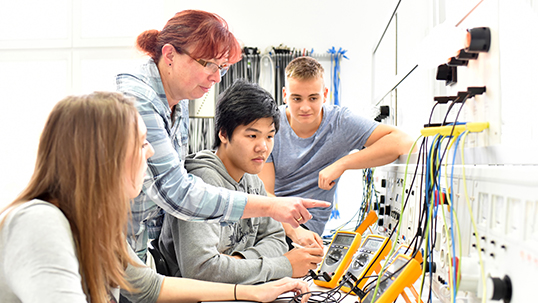York is committed to providing an enriched teaching and learning environment, and answering a crucial student need to prepare for a rapidly evolving workforce. You and your students will benefit when you incorporate experiential education strategies into your teaching. You can use creative teaching strategies, collaborate with community partners and provide engaging ways for students to gain valuable practical work experience – and then help them reflect on those experiences using the theoretical knowledge they’ve learned.
The Experiential Education Office in LA&PS is here to support faculty members in the design and delivery of experiential education activities in their courses. This toolkit contains links to helpful resources and funding opportunities available to support instructors looking to enhance student engagement with their course material. The Experiential Education Office is always happy to partner with faculty members to help bring experiential education into your classroom.
Quick Links
Need Funding?
LA&PS has a dedicated fund to support course instructors who enhance classes with EE opportunities.
Need Partners?
The Project Commons has a bank of ready-made projects to help you integrate the world into your classroom today.
Resources

Classroom-Focused Strategies
Students develop a more thorough understanding of course concepts through activities both in and outside the classroom, such as guest speakers, role-playing, case studies, executive interviews, participation in community events and field trips, and even study abroad opportunities. This strategy allows students to apply theory and course content to concrete experiences that encourage reflection and conceptualization.

Community-Focused Strategies
Community partners are invited into the classroom to present predefined problems, questions or issues for students to explore and analyze, applying their developing knowledge and reflecting on how the actual experience informs their learning. Other learning options include working on a community-based research project and community service learning, where students engage in activities that address civic needs.

Work-Focused Strategies
Course placements, capstone experiences, and other work-integrate learning opportunities are valuable, unpaid work opportunities for academic credit in which students develop the competencies and skills learned in their course by getting hands-on experience within organizational environments. The learning emphasizes career exploration, employability and professional skills development, and focuses on achieving student learning outcomes.

